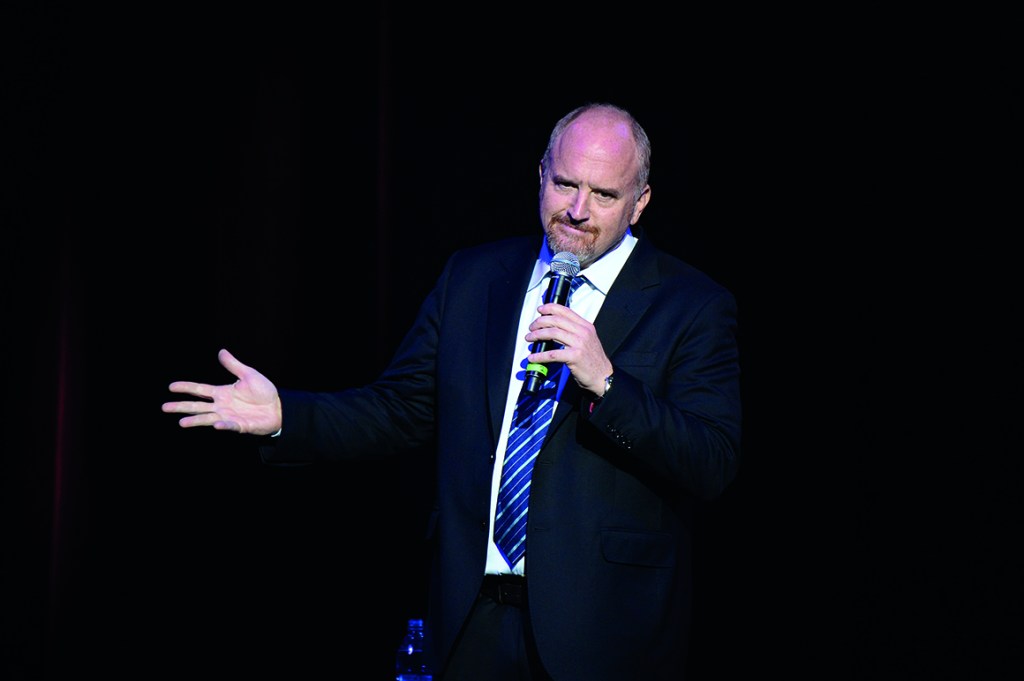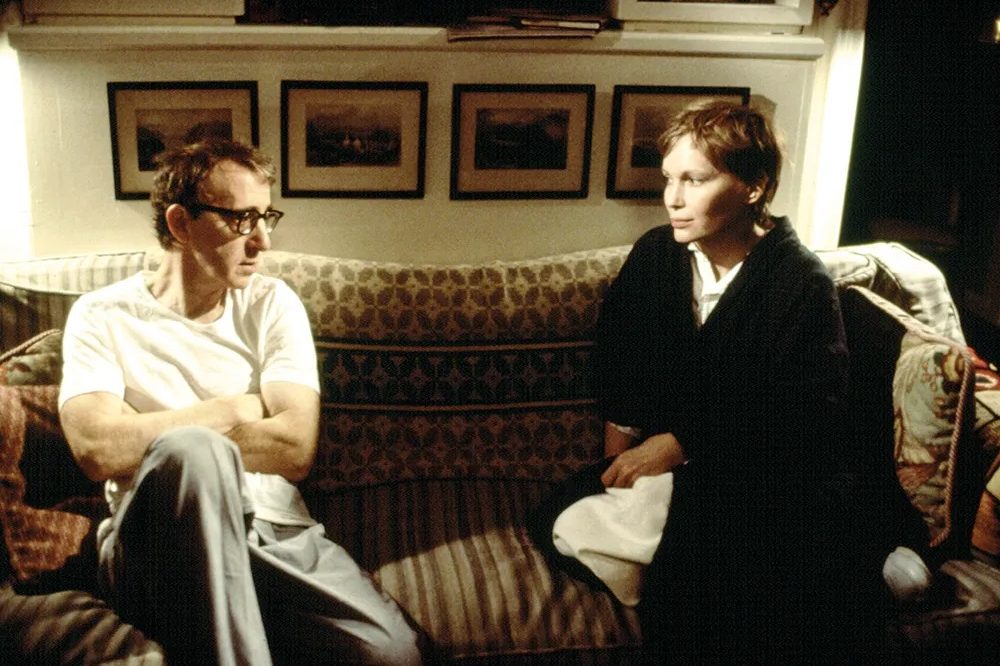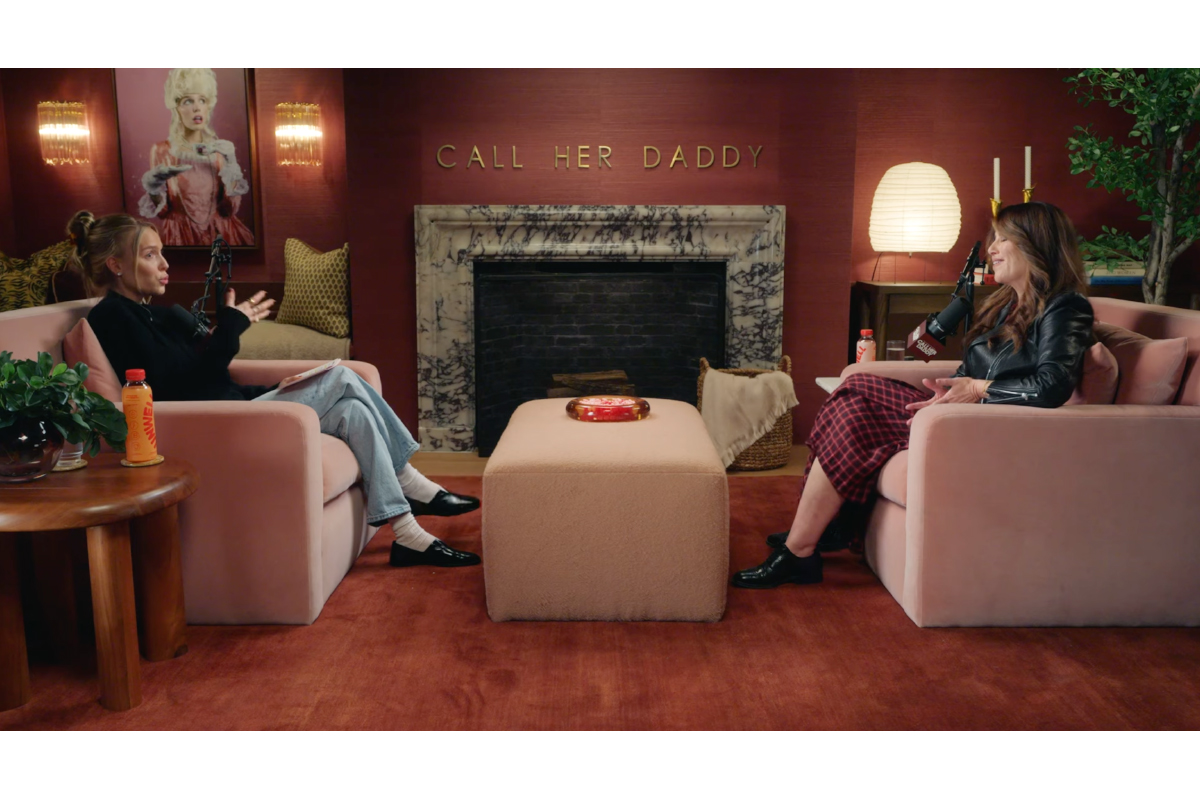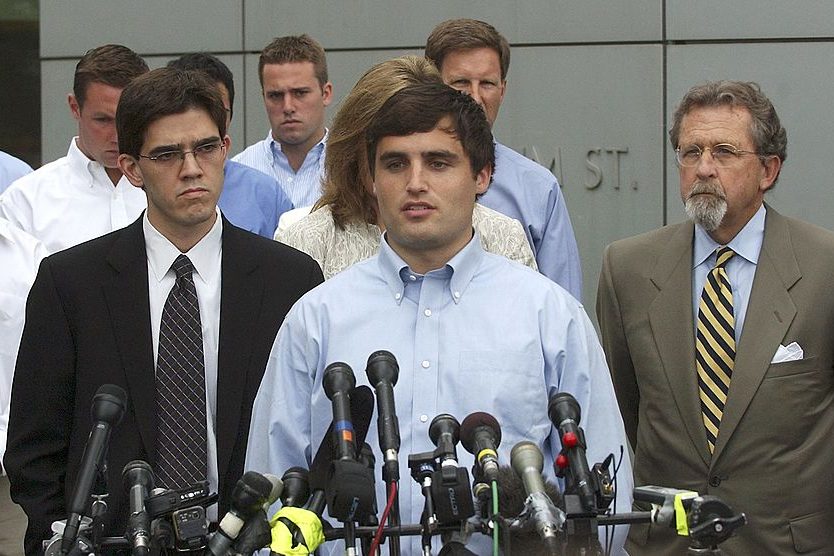‘You are so lucky that I don’t know your thing. Do you understand how lucky you are?’ comic Louis C.K. tells his comeback show audience. ‘Everybody knows my fucking thing, now. Obama knows my thing. Do you understand how that feels? To know that Obama was like “Good Lord!”’
It’s a good point well made. Everyone who knows anything about the world of comedy does indeed know Louis C.K.’s thing. In 2017, when #MeToo exploded, C.K. was ranked by Rolling Stone number four among the 50 best stand-up comics of all time. His sexual proclivity was publicly exposed, he lost numerous television deals and movie contracts and he suddenly found himself cast into outer darkness. All in all, it cost him an estimated $35 million in lost income. His thing? Masturbating in front of not always enthusiastic women, especially female comics and writers.
C.K. — real name, Louis Székely — works his public humiliation into the last part of Sincerely Louis C.K., his new routine. Although it’s quite brave, it’s also the weakest moment, because there’s too much contrition there. In the guise of a comic riff, he delivers a homily about how during sex the fact that a woman may be making moaning noises is no indication that she’s really enjoying it or even consenting. Which may technically be true, but it’s also uncomfortably off-brand. From someone worthy like Ellen DeGeneres, yes. But not from C.K., whose schtick after all is how unapologetically, fearlessly awful he his.
Like Dave Chappelle, C.K.’s gift is for saying the unsayable — for the easy money and the cheap laugh, obviously, but also as a public service: testing the bounds of acceptability, standing up for free speech and exposing society’s hypocrisies. There’s a particular moment where C.K.’s eyes light up and his prey-drive kicks in, when as notices his audience being unaccountably squeamish about a disabled joke. They were fine when he mocked the legless in general, but suddenly became uneasy when he specified that the imaginary butt of his joke had had his legs blown off during a marathon. ‘Why?’ C.K. asks them.
This is how Chappelle and C.K. earn their money: by noticing things (sick, near the knuckle things, preferably) that we’ve all subliminally noticed but never permitted ourselves to articulate. One of the best parts of C.K.’s routine is on why he’s an atheist, starting with a more lowbrow variant of Pascal’s Wager, where he acknowledges the risk of dying and realizing, to your horror, after your death that there is a God after all: ‘Oh, fuck! You’re shitting me? With the beard and everything! Fuck!’
An equal-opportunity offender, he moves on to Islam, meditating sensitively on the question of where God gets the 72 virgins who are traditionally awarded to guys like the one ‘who has just blown up a bus in Tel Aviv’. C.K. wonders: ‘Does God have to kill 72 nice girls? Does God make them fresh, like farm-raised salmon: “OK. Nobody fuck these. I’m saving them for that guy…”’
Then it’s the Holocaust: ‘Forty-four members of my family were in Auschwitz.’ Which may be true, but he can’t resist adding: ‘I mean, they were guards, they worked there.’ No they weren’t. C.K. is of Hungarian Jewish heritage. But from ‘too early an age’, he tells us, he realized how much pleasure he could get saying stuff that made people really angry — and lo! a lucrative career was born.
[special_offer]
Later —why would you not? — he considers the circumstances under which he would be prepared to fuck a kid and finds that he emerges from this scenario with his moral conscience almost entirely clear. ‘Even if doctors proved that it was beneficial to the health of children,’ he would not have sex with them. ‘I would not fuck a kid to save his life.’
As with Chappelle’s similar routine about the sexual attractiveness of Macaulay Culkin in his child-star era, this riff is both utterly gratuitous and yet somehow desperately necessary. We need heroes like Chappelle and C.K. to go on stage and persuade large audiences to laugh at this kind of material. In doing so they offer us hope: that despite decades of stultifying political correctness imposed on us by everyone from the cops and academics to workplace HR departments, many — or indeed perhaps most — of us just aren’t buying it. We still enjoy a well-crafted sick joke.
To watch this show — called Sincerely Louis C.K. — I had to pay $8 to download it from C.K.’s website. All those entertainment companies that prissily rejected Louis C.K. after his public embarrassment — who did they think he was, St Francis of Assisi? — are going to look like prudes and hypocrites and canting shysters that they are. Funny is money. And Louis C.K. is still very funny.
Sincerely Louis C.K. can be downloaded from louisck.com.

























